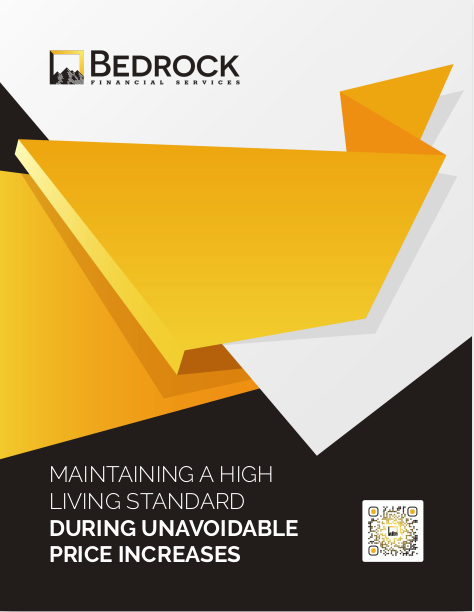Key Takeaways
-
More financial advisors in 2025 are using CRM systems to automate routine tasks, streamline communication, and manage client relationships, giving them more time for strategic growth.
-
The best results come when CRM tools are fully integrated into your marketing and client service processes, creating a centralized workflow from prospecting to onboarding and beyond.
Why CRMs Are Becoming Essential in Financial Advising
As a financial professional, you juggle a wide range of responsibilities: managing client relationships, tracking communications, staying compliant, coordinating marketing, and, above all, growing your business. In 2025, more advisors are turning to Customer Relationship Management (CRM) systems as a centralized solution to handle these tasks efficiently.
The shift isn’t about offloading responsibility. It’s about upgrading your workflow. CRM tools help you spend less time on repetitive tasks and more time on what matters: providing high-value services to your clients and scaling your advisory practice.
The Burden of Manual Management
Before CRM systems became widespread, you may have relied on spreadsheets, sticky notes, and email folders to stay organized. But this approach makes it difficult to:
-
Track where each client is in your pipeline
-
Maintain consistent follow-up
-
Segment your communications
-
Ensure timely task execution
-
Keep your team aligned on shared goals
Manual processes increase the risk of delays, missed opportunities, and compliance errors. As your business grows, these inefficiencies compound.
What CRMs Can Do for You in 2025
Modern CRM platforms in 2025 are more than digital address books. They are powerful, AI-enabled systems designed specifically for service professionals like you. When configured properly, a CRM can:
-
Automate follow-ups and appointment reminders
-
Segment your leads and clients by service need, stage, or priority
-
Store all client communications, forms, and notes in one place
-
Track marketing campaigns and analyze their conversion results
-
Streamline onboarding and service delivery workflows
-
Schedule personalized emails and check-ins
These capabilities reduce your manual workload, cut down on errors, and allow you to serve more clients without sacrificing quality.
What Time Are You Getting Back?
Advisors using CRM tools effectively are reporting an average of 7 to 12 hours saved per week. That time adds up to over 500 hours annually. Imagine repurposing those hours to:
-
Book more high-quality client appointments
-
Develop educational content or webinars
-
Refine your service offerings and pricing strategy
-
Strengthen referral partnerships
-
Review and improve client portfolios
In short, CRM automation is not just a time-saver. It’s a business growth strategy.
The Integration Advantage
A standalone CRM tool is helpful. But its real value emerges when it’s integrated with your existing systems. In 2025, best practices include syncing your CRM with:
-
Email marketing platforms
-
Calendar scheduling tools
-
eSignature solutions
-
Compliance and document management systems
-
Lead generation sources
-
Client portals and service dashboards
When everything talks to everything else, you eliminate data silos. You no longer have to manually update client details in multiple platforms. Every team member sees the same data. Your workflows become consistent and repeatable.
Where Most Advisors Start
The most common entry point into CRM systems is lead tracking. As a financial professional, you likely spend significant time generating leads. But without a clear tracking system, leads slip through the cracks.
CRM tools help you:
-
Set up automated lead capture from websites, landing pages, or events
-
Tag and categorize leads based on interest, location, or financial needs
-
Trigger personalized email sequences based on behavior
-
Assign leads to your team or schedule follow-ups instantly
Once this foundation is in place, most advisors expand into using CRM for onboarding, client servicing, and even retention campaigns.
How Automation Improves Client Experience
Automation may sound impersonal, but in reality, it enhances personalization. Here’s how:
-
Timely responses make clients feel heard
-
Reminders and updates reduce confusion and anxiety
-
Personalized email content makes communication feel intentional
-
Automated document requests keep compliance on track
-
Scheduling tools reduce back-and-forth messaging
With a CRM managing the logistics, you can focus on the human connection—listening, advising, and supporting your clients with greater attention.
Reducing Compliance Risk
Regulatory oversight in financial advising continues to increase in 2025. Your CRM can be configured to:
-
Timestamp communications and document delivery
-
Archive all correspondence and consent forms
-
Alert you to required disclosures or filing deadlines
-
Track client status for compliance milestones
These features help you stay audit-ready and build a defensible process in case of disputes or inquiries.
How to Choose a CRM That Works for You
With hundreds of CRM platforms on the market, it’s important to choose one that aligns with your practice size, tech comfort level, and client base. Key factors to consider:
-
Is it built for financial professionals or is it general purpose?
-
Does it integrate with the tools you already use?
-
How steep is the learning curve for you and your staff?
-
Can it scale as your business grows?
-
Does it offer compliance support features?
Many advisors benefit from platforms that are pre-configured for financial services, reducing setup time and avoiding feature overload.
The Role of AI in Advisor CRMs in 2025
AI has become a core part of modern CRM systems. In 2025, CRM tools often include:
-
Predictive lead scoring to identify high-potential prospects
-
Automated insights into client needs based on past behavior
-
AI-driven email and content suggestions
-
Chatbots for client support and intake
These features help you focus your time where it matters most—on the clients who are ready to move forward or need deeper engagement.
Training Your Team for CRM Success
CRM success depends not just on technology but also on adoption. You and your team must:
-
Agree on standardized workflows
-
Keep client data up to date
-
Log all client interactions
-
Regularly review CRM reports to guide decisions
Initial setup can take 2 to 4 weeks, but with a clear training plan, most teams adapt within the first quarter. By month three, advisors often see measurable productivity gains.
You Don’t Need to Be a Tech Expert
One of the biggest myths in 2025 is that CRM adoption requires deep tech knowledge. In truth, the most effective systems are designed to be intuitive and user-friendly. With a bit of guided onboarding, you can:
-
Set up automations with simple logic workflows
-
Drag and drop email templates or pipeline stages
-
Use dashboards for at-a-glance reporting
The point is not to become a CRM technician—it’s to empower your business to work smarter.
From Reactive to Proactive Service
A CRM transforms how you respond to client needs. Instead of reacting to emails or scrambling to meet deadlines, you can:
-
Proactively reach out before renewals or key milestones
-
Use client data to anticipate questions and concerns
-
Deliver consistent, repeatable experiences every time
This shift from reactive to proactive is what sets high-performing advisors apart in 2025.
It’s About Time—And Where You Spend It
Time is your most valuable resource. Every hour spent chasing paperwork or digging through emails is time not spent advising, selling, or growing. By letting your CRM handle the workflow, you free yourself to focus on strategic priorities.
And if you’re wondering whether it’s worth the change—the results speak for themselves. Advisors who embrace CRM automation often report higher client satisfaction, better retention, and more predictable growth.
Build Smarter Systems with Bedrock Financial Services
If you’re ready to free up your time, scale your client base, and deliver better service, we’re here to help. At Bedrock Financial Services, we offer tools and support tailored for advisors like you. We understand what you need to grow because we work with professionals who are doing it every day.
Sign up with us to learn how we can simplify your workflows, improve your marketing results, and help you reclaim your time. Let’s build your smarter system—together.







